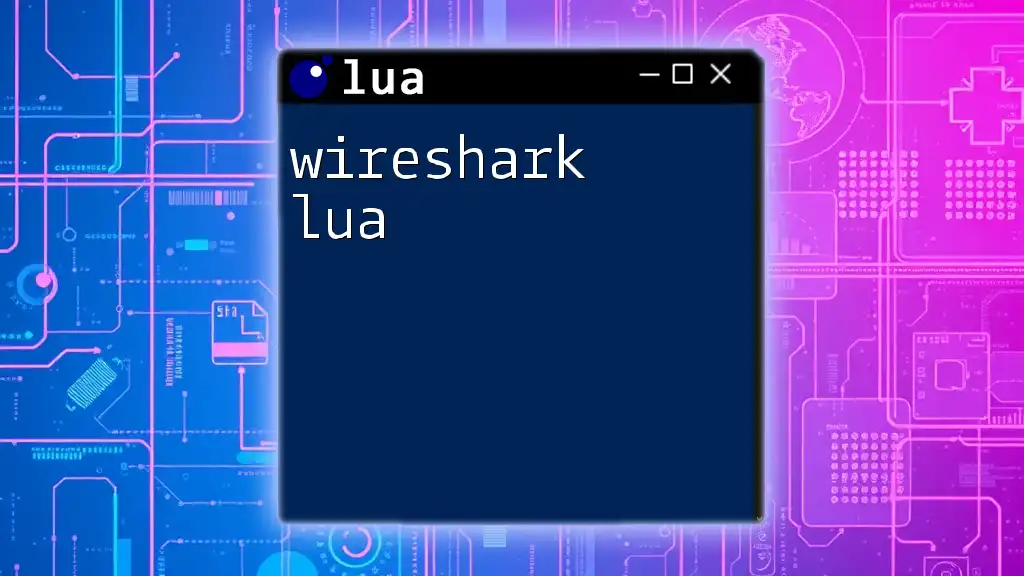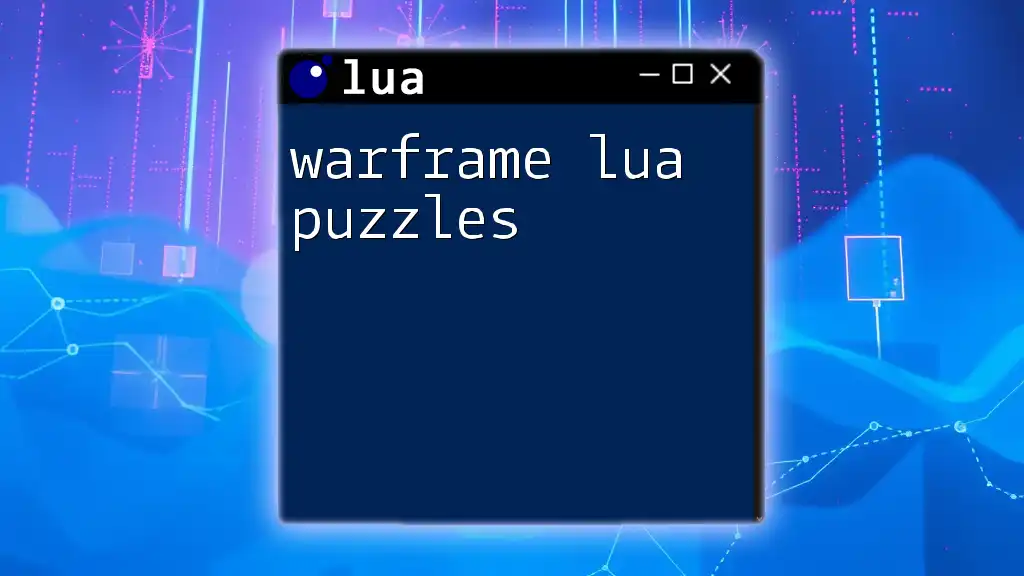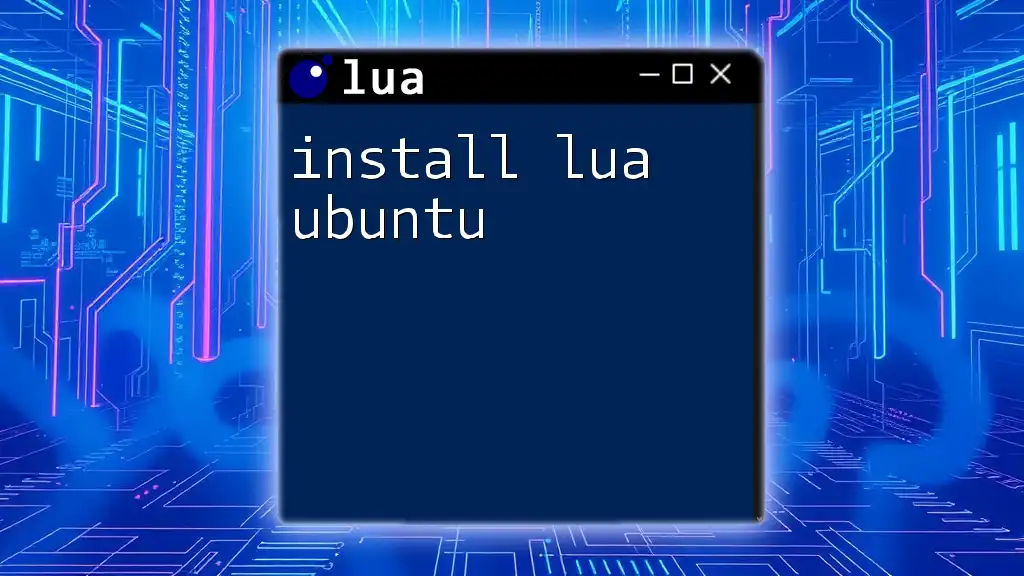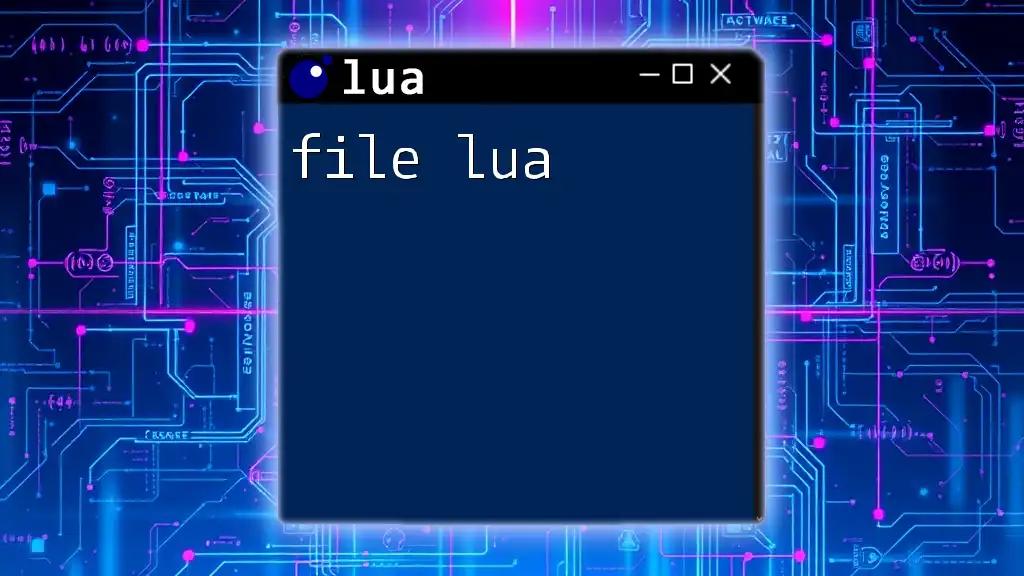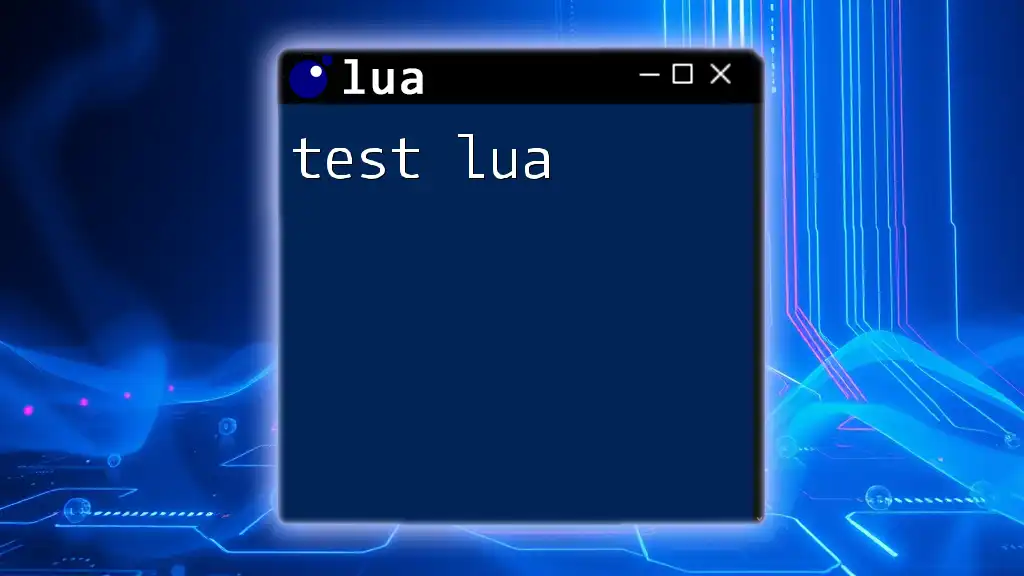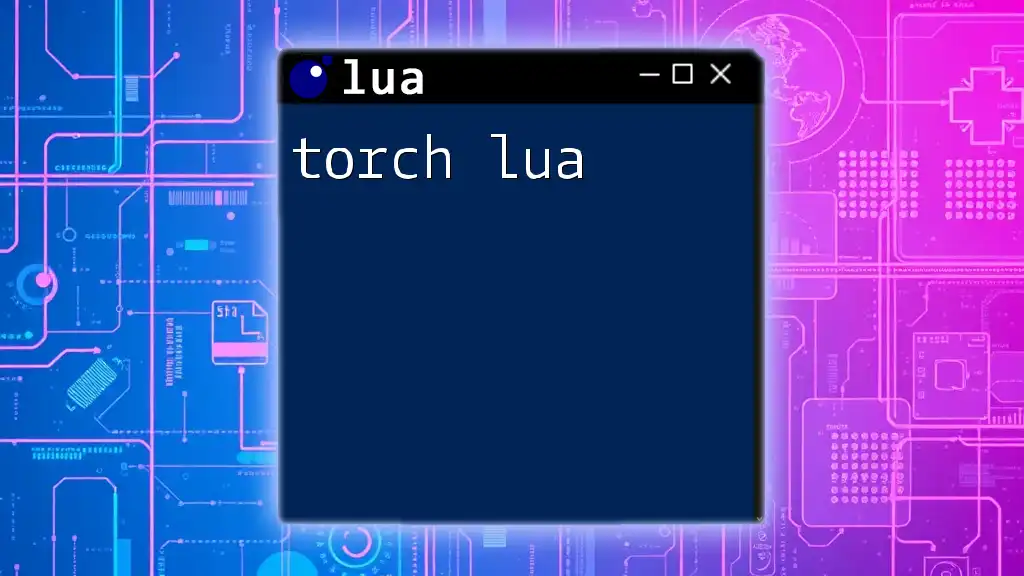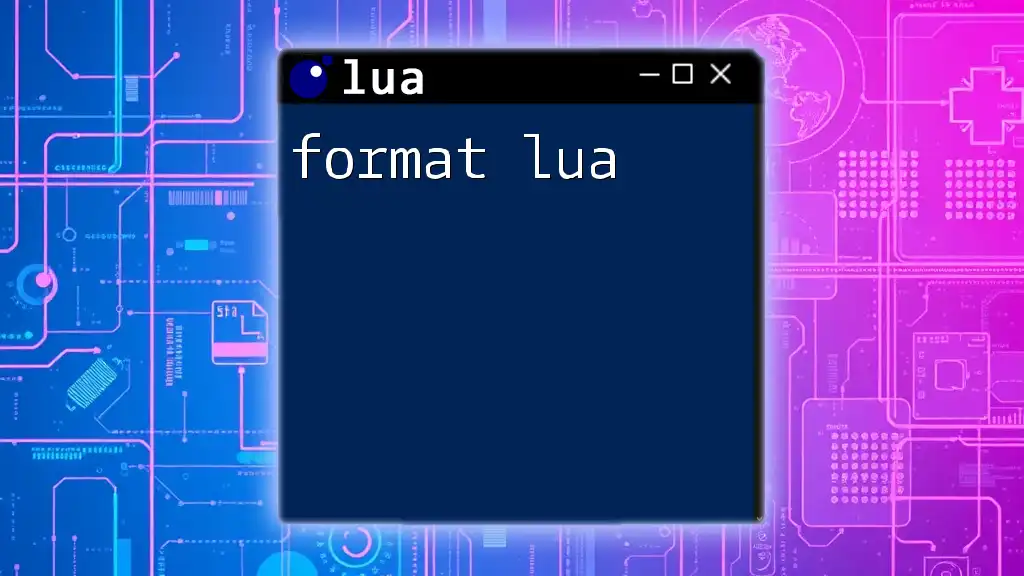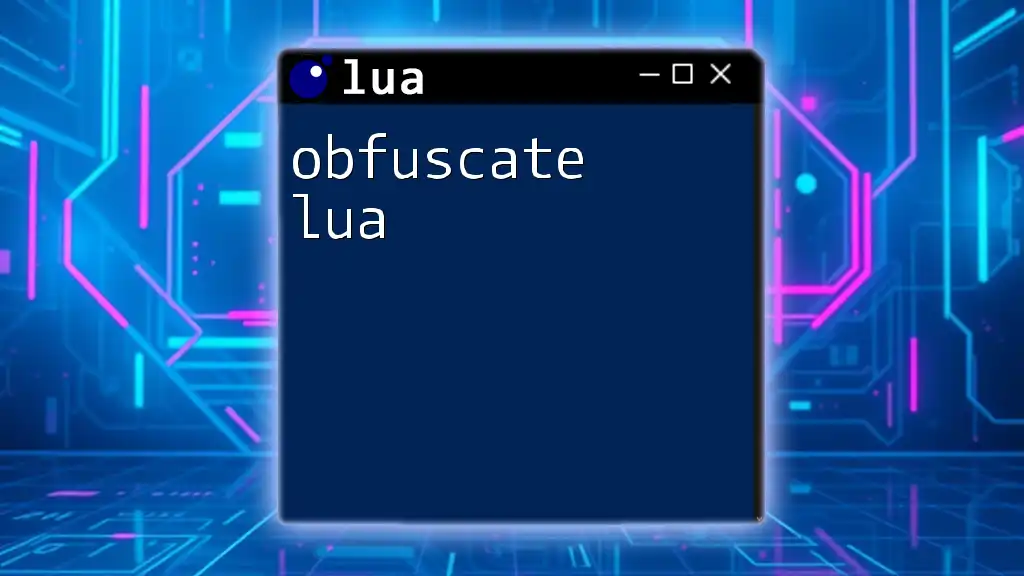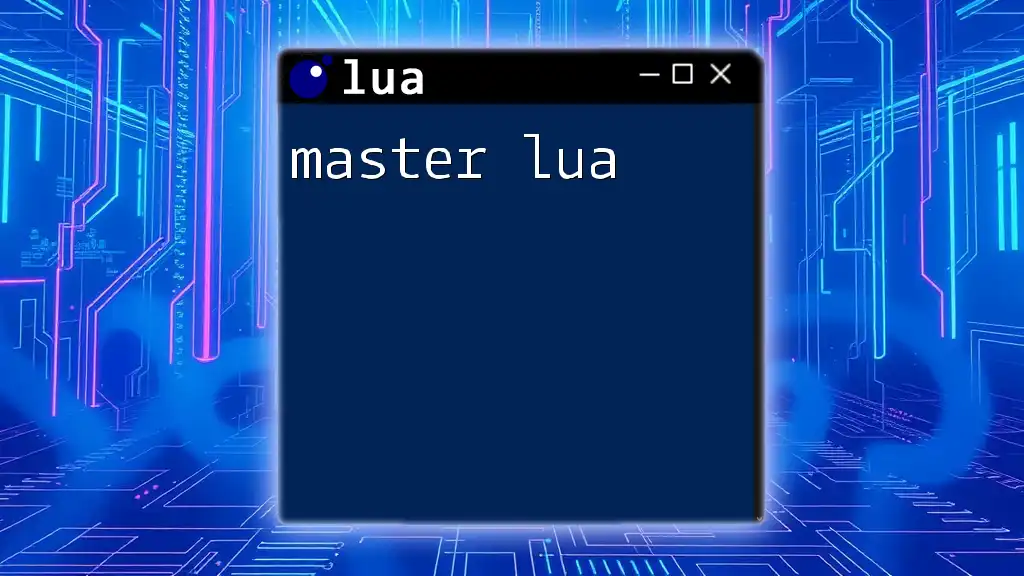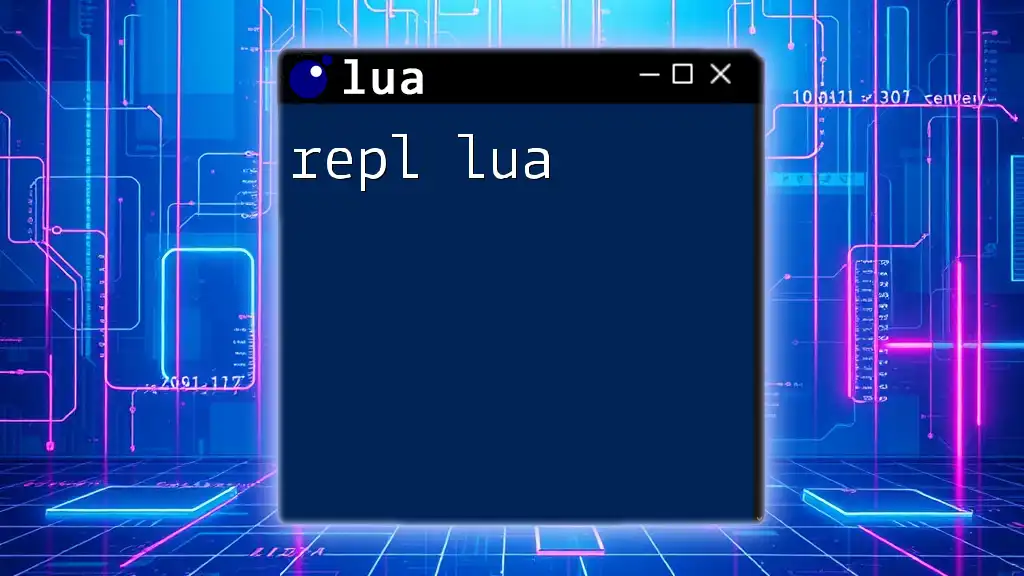Wireshark Lua allows users to extend Wireshark's capabilities by writing custom dissectors and plugins using the Lua programming language, enabling the analysis of specific network protocols or data formats.
Here’s a simple example of a Lua script for a Wireshark dissector:
local myproto = Proto("myproto", "My Custom Protocol")
function myproto.dissector(buffer, pinfo, tree)
pinfo.cols.protocol = "MYPROTO"
local subtree = tree:add(myproto, buffer(), "My Custom Protocol Data")
subtree:add(buffer(0, 4), "Field 1: " .. buffer(0,4):uint())
subtree:add(buffer(4, 4), "Field 2: " .. buffer(4,4):uint())
end
local tcp_port = DissectorTable.get("tcp.port")
tcp_port:add(12345, myproto)
What is Wireshark?
Wireshark is renowned as the world's leading network protocol analyzer, enabling users to capture and interactively browse the traffic running on a computer network. With its comprehensive set of features, Wireshark is indispensable for network troubleshooting, analysis, software and protocol development, and education.
Overview of Network Protocol Analysis
Network protocol analysis refers to the process of interpreting data packets transmitted over a network. The detailed examination of these packets allows network engineers and security professionals to glean important insights regarding overall network performance, diagnose issues, and detect anomalies indicative of fraudulent activity.
Features of Wireshark
Wireshark offers a myriad of features that make it the tool of choice for protocol analysis:
- Packet Capturing: Capture live network data from Ethernet, Wi-Fi, and other network interfaces.
- Protocol Decoding: Understand the structure of network protocols by interpreting packet data.
- Powerful Analysis Tools: Use filters, graphs, and statistics to analyze protocol behavior and network performance.
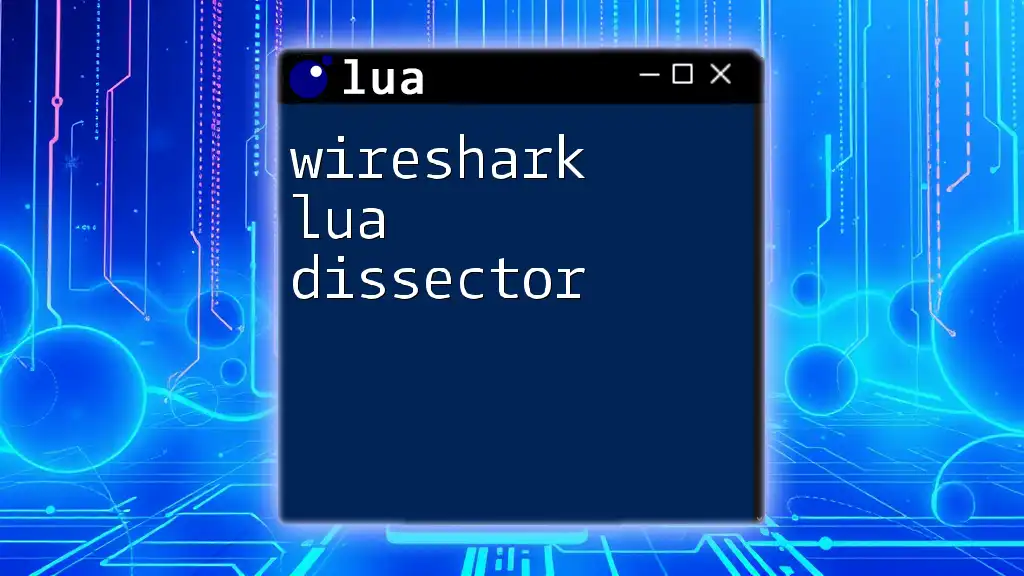
Why Use Lua in Wireshark?
Advantages of Lua Scripting
Incorporating Lua scripting into Wireshark enhances its versatility by allowing users to write custom extensions, or scripts, that augment and tailor Wireshark’s functionality. Some key advantages of using Lua include:
- Lightweight and Fast Execution: Lua is designed to be simple and efficient, resulting in faster processing times for scripts.
- Flexibility in Custom Protocol Analysis: Create bespoke solutions for unique protocols or data streams by writing tailored dissectors.
- Easier Integration: Lua scripts are seamlessly integrated with the existing Wireshark interface, facilitating real-time modification and analysis of captured packets.
Use Cases for Lua in Wireshark
There are numerous scenarios in which Lua scripting can significantly benefit users:
- Custom Dissector for Proprietary Protocols: Easily define and analyze non-standard protocols specific to an organization.
- Automated Reporting: Generate reports based on captured data and analyses, saving time and effort.
- Analyzing Large Datasets: Process and dissect large amounts of data efficiently, which is crucial in big data environments.
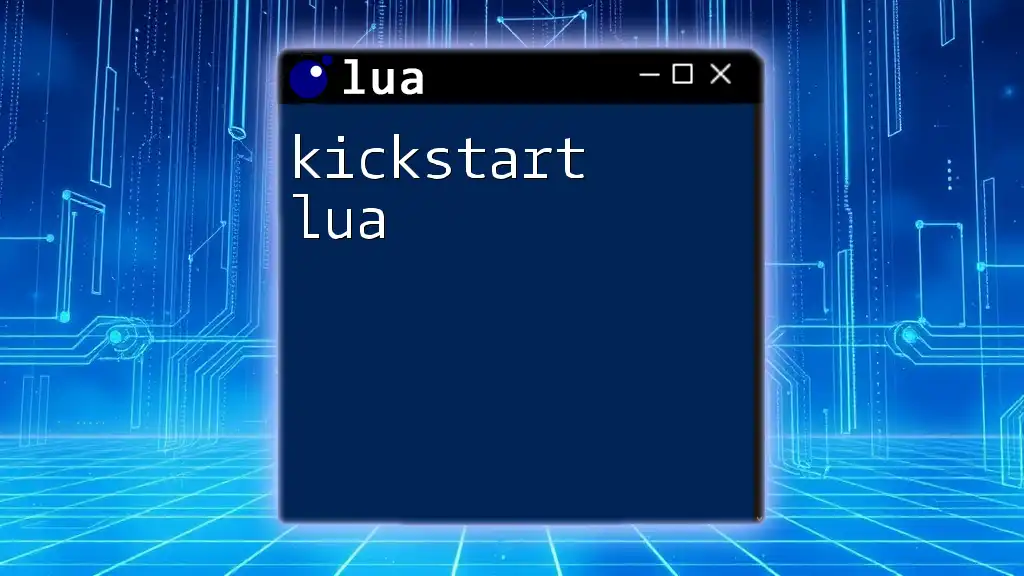
Getting Started with Lua in Wireshark
Setting Up Your Environment
Before diving into Lua scripting, ensure you have the correct version of Wireshark installed on your machine. You can download it from the official Wireshark website. Once installed, you can access the Lua scripting interface by navigating to the "Help" menu and selecting "About Wireshark;" look for the Lua version information displayed.
Basic Lua Syntax
Understanding the fundamentals of Lua syntax is crucial for productive scripting. Here are essential concepts:
- Variables and Data Types: Lua supports different data types including strings, numbers, functions, and tables.
- Functions and Control Structures: Familiarize yourself with the definition of functions and the use of control structures like if statements, loops, and tables.
For example, you could create a simple Lua script with basic syntax:
-- A simple Lua example to demonstrate syntax
local greeting = "Hello, Wireshark!"
print(greeting)
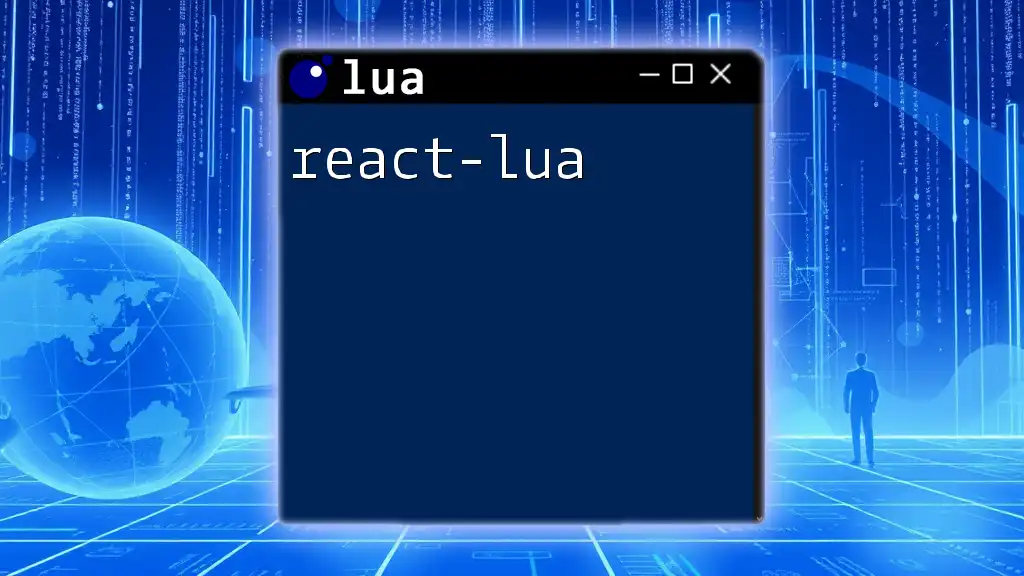
Creating Your First Lua Script
Writing a Simple Lua Script
To kickstart your journey in Wireshark Lua scripting, consider the basic structure of a Lua script. At its core, a simple script should invoke the necessary functions to manipulate data. Below is an example of a minimal Lua script that merely prints a message:
-- Basic Lua Script Example
print("Hello, Wireshark!")
Running Your Script in Wireshark
Once you’ve written a script, the next step is executing it within Wireshark. Save your Lua script with a `.lua` extension and place it in the appropriate directory (e.g., the Plugins folder of your Wireshark installation). You can enable Lua scripts via the Wireshark preferences under the "Protocols" section, ensuring your script is loaded on startup. If executed correctly, you'll see any output in the console when Wireshark is running.
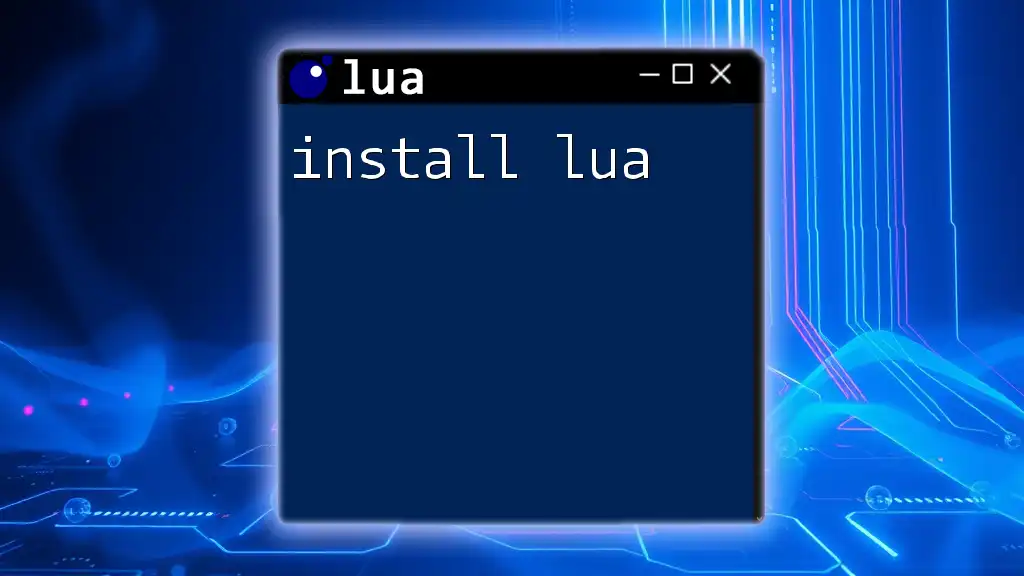
Advanced Lua Scripting in Wireshark
Custom Protocol Dissector
What is a Dissector?
A dissector is a Lua script that analyzes packet data and extracts relevant information based on predefined protocols. This makes the process of analyzing complex packets easier and more intuitive.
Writing Your Own Dissector
To create a custom dissector, you need to define critical components, such as protocol fields and their parsing logic. Here is a basic example of a Lua dissector for a hypothetical protocol:
local my_proto = Proto("myproto", "My Custom Protocol")
function my_proto.dissector(buffer, pinfo, tree)
pinfo.cols.protocol = my_proto.name
local msg_length = buffer:len()
tree:add(my_proto, buffer(0, msg_length))
end
-- Register the dissector with a specific protocol port
local tcp_port = DissectorTable.get("tcp.port")
tcp_port:add(12345, my_proto)
Utilizing Built-in Functions and Libraries
Wireshark comes equipped with a rich set of libraries that can be harnessed in your Lua scripts. Familiarize yourself with these functions, as they enable packet manipulation and analysis without having to reinvent the wheel. For instance, you can utilize functions for accessing packet fields, filtering protocols, and capturing traffic data.
Error Handling in Lua
As with any programming language, errors can arise in Lua scripting. Common problems include syntax errors and runtime exceptions. Effective debugging practices involve using print statements liberally in your scripts to log ongoing processes or utilizing Wireshark's own logging facilities to trace issues.
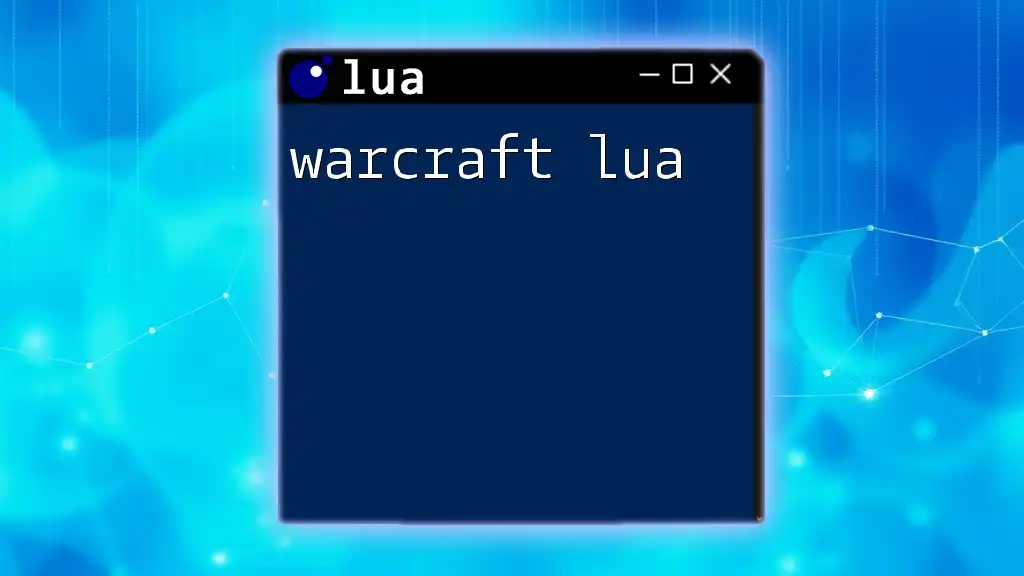
Performance Considerations
Optimizing Lua Scripts
For robust performance, especially in environments where large amounts of traffic are observed, it is important to optimize your Lua scripts. Consider reducing the number of function calls in time-critical sections, simplifying logic flows, and minimizing memory allocations where possible.
Avoiding Common Pitfalls
Avoiding common mistakes can prevent performance degradation. This includes ensuring that your script correctly handles the lengths of packet fields, thoroughly validating received data, and efficiently managing any Lua tables or structures that you create.
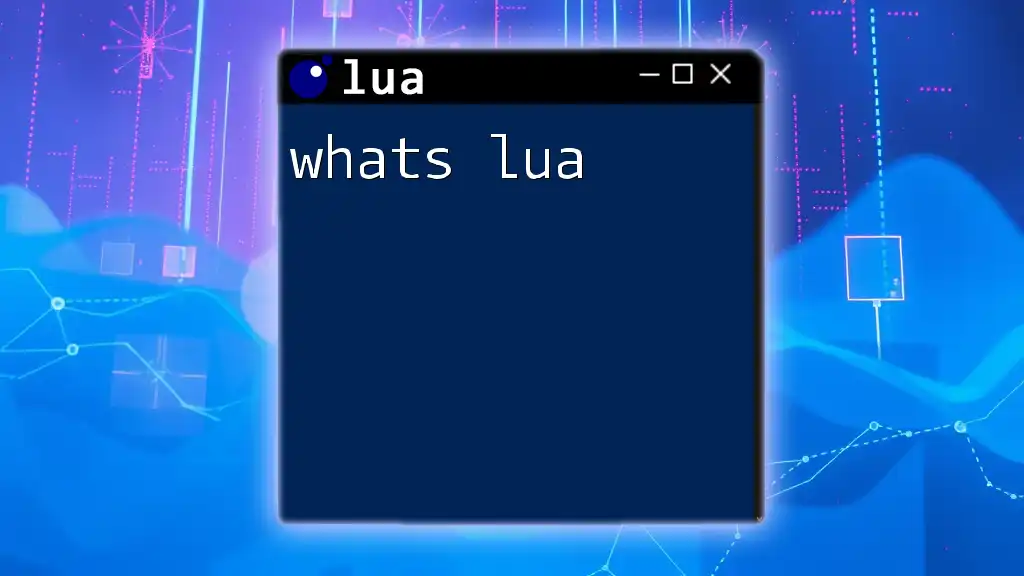
Practical Examples of Lua in Wireshark
Common Protocols and Their Lua Implementations
Many widely-used protocols can benefit from Lua implementations. For example, creating a simple dissector for HTTP protocol traffic could be accomplished through Lua scripting. The following snippet provides a basic approach:
-- Simple HTTP dissector
local http_proto = Proto("http", "HTTP Protocol")
function http_proto.dissector(buffer, pinfo, tree)
pinfo.cols.protocol = http_proto.name
local http_length = buffer:len()
tree:add(http_proto, buffer(0, http_length))
end
local udp_port = DissectorTable.get("udp.port")
udp_port:add(80, http_proto)
Real-World Use Case Scenarios
Consider the case of a company that employs Lua scripts to analyze its proprietary protocol for internal communication. By utilizing custom Lua dissectors, the company is able to streamline its analysis process, facilitate rapid troubleshooting, and ultimately improve the security and performance of its network operations.
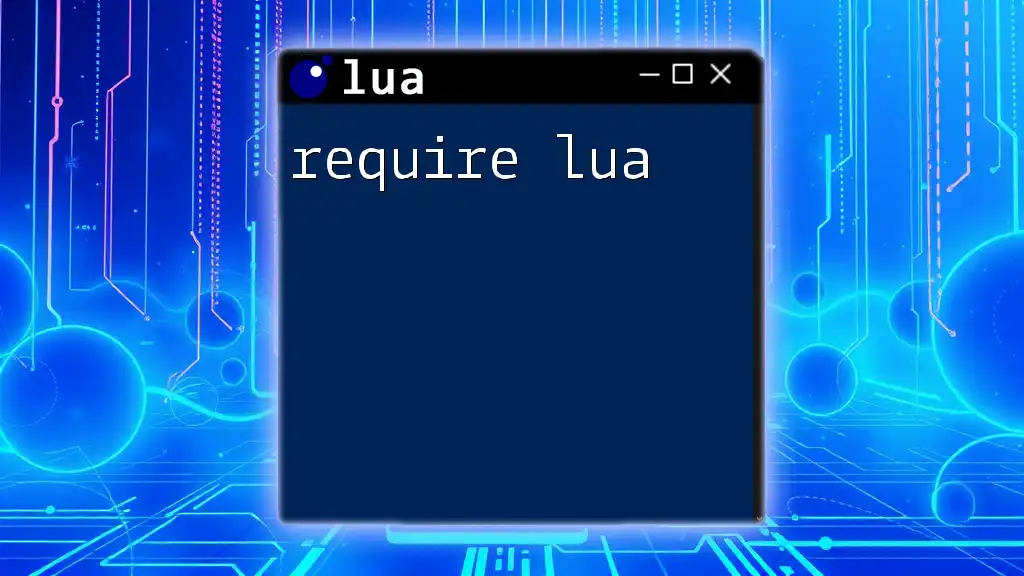
Conclusion
Leveraging Wireshark Lua scripting empowers users to unlock the full potential of this powerful network analysis tool. The customization options available through Lua underscore the versatility inherent in Wireshark, making it an asset for anyone involved in network analysis, diagnostics, or security.
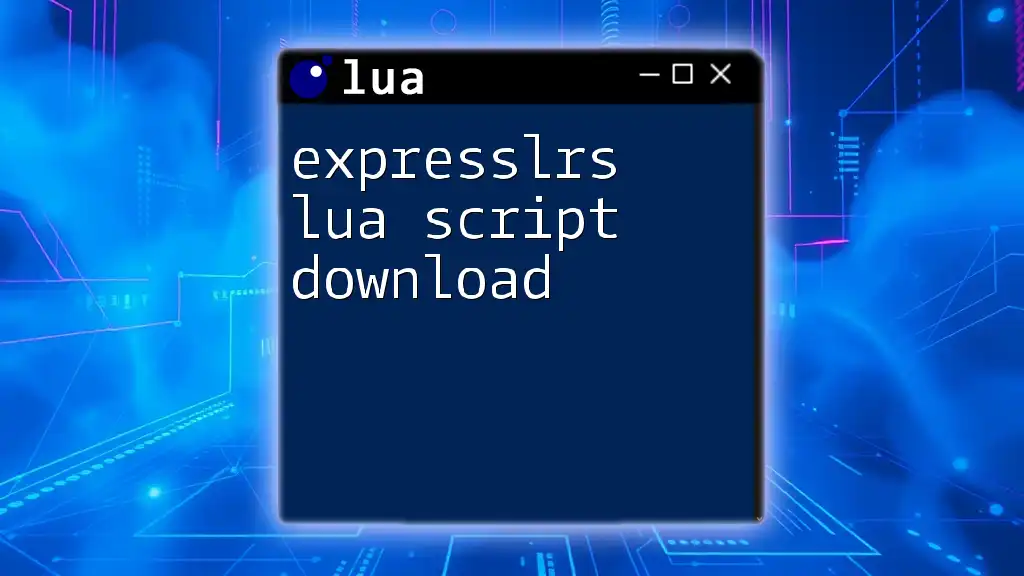
Additional Resources
Documentation and References
To dive deeper into Wireshark Lua scripting, refer to the official Wireshark Lua documentation, where you'll find extensive examples and detailed explanations. Online courses and tutorials also provide excellent supplementary material for improving your scripting skills.
Community and Support
Engaging with forums and online communities dedicated to Wireshark users can be invaluable. This interaction fosters knowledge sharing and support—perfect for both budding and experienced users looking to refine their Lua scripting capabilities.

Call to Action
We encourage you to share your experiences and scripts with the community. Join our upcoming Lua scripting workshops and webinars to further enhance your skills and collaborate with fellow script writers. Together, let's unlock the power of Wireshark with Lua!

